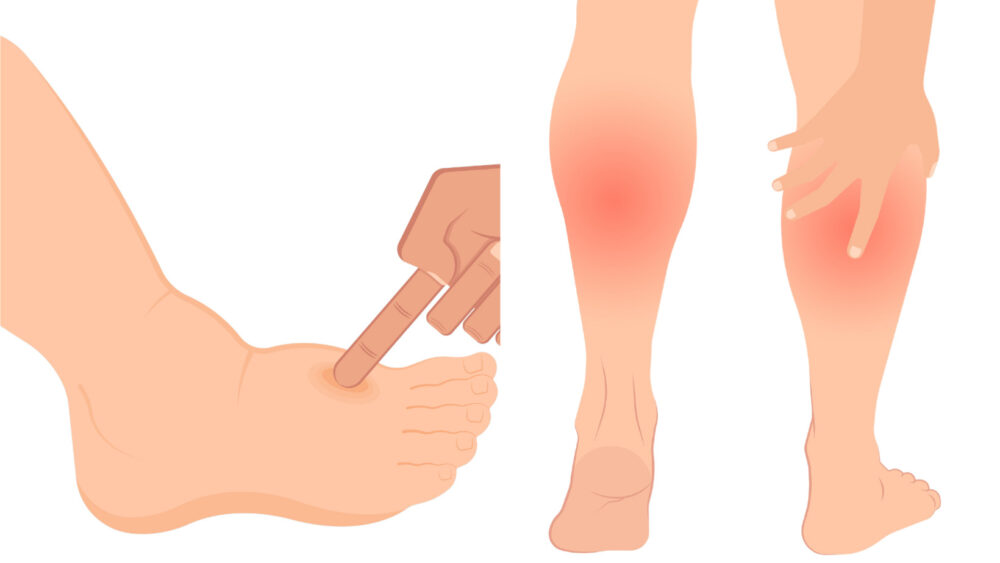According to the Canadian Center For Occupational Health And Safety, excessive heat exposure is dangerous and can cause several illnesses.
Heat Edema
People who are not used to hot environments are more likely to experience heat edema, which is swelling, most often in the ankles.
Heat Rash
Sometimes in a hot, humid atmosphere, heat rashes appear as little red spots on the skin and cause intense itching. The irritated spots are the result of clogged sweat glands. When a person enters a cooler area, heat rash typically goes away.
Heat Cramps
Sharp aches in the muscles, otherwise known as heat cramps, can happen alone or in conjunction with another heat illness. Typically, cramps are triggered by a salt imbalance brought on by prolonged perspiration, or sweating. If water lost through perspiration is not replaced, salt can accumulate in the body. Often, the cause of heat cramps is due to not drinking enough water.
Heat Exhaustion
Salt and water from the body are lost through excessive sweating, which can lead to heat exhaustion. Heavy perspiration, weakness, disorientation, blurred vision, severe thirst, nausea, headaches, muscle cramps, breathlessness, palpitations, and pale, cool, and moist skin are all indicators of heat exhaustion. If you are experiencing heat exhaustion, get medical help, go to a cooler environment, and drink. lol water. If left untreated, heat exhaustion can eventually lead to heat stroke.
Heat Stroke
The most serious form of heat sickness is heat stroke. High body temperature (typically anything over 40°C) and loss of consciousness are warning signs of heat stroke. Confusion, erratic conduct, convulsions, and heated, dry skin are further potential symptoms. If you or a loved one seems to be experiencing these symptoms, treat them right away—delaying treatment could lead to death. Make sure to get medical help, remove extra clothing, and spray water on the affected person.
Heat Syncope
Lastly, Heat syncope occurs when a person experiences dizziness and fainting while standing still due to a loss in blood supply to the brain. Most of the time, vigorous exercise for a long period of time (two or more hours) can cause heat syncope. Sweating causes the body to lose fluids, and blood pooling in the legs lowers blood pressure, which both contribute to the condition. Resting in a cool environment can help speed recovery.
All of these heat illnesses might sound scary, but as long as you stay hydrated and pay attention to how your body feels this summer, you should be able to prevent most of them. Just remember, while it’s important to have fun, your health should come first.



